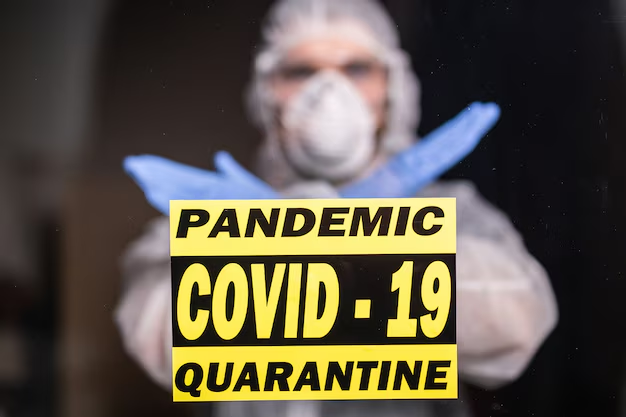Pneumonia Without a Cough: What You Need to Know
When you think of pneumonia, a persistent cough is often the first symptom that comes to mind. However, could it be possible to have pneumonia without this hallmark sign? The answer is a resounding yes. Pneumonia without a cough can occur, and understanding why is crucial for recognizing this sometimes elusive illness. This article explores the nuances of pneumonia, its symptoms, and what it means to experience it without a cough.
Understanding Pneumonia and Its Common Symptoms
What is Pneumonia?
Pneumonia is an inflammatory condition of the lung affecting primarily the small air sacs, known as alveoli. Typically, it's caused by bacteria, viruses, or fungi that invade the lungs, leading to symptoms that range from mild to severe.
Common Symptoms
The classic symptoms of pneumonia include:
- Cough: Often productive, meaning it brings up mucus
- Fever: High temperature and chills
- Shortness of Breath: Difficulty in breathing
- Chest Pain: Sharp or stabbing pain, especially when coughing or breathing deeply
- Fatigue and Weakness: General sense of not feeling well
While these symptoms are well-known, it's critical to recognize that symptoms can vary significantly depending on the cause of pneumonia, the individual's age, and their overall health.
Pneumonia Without a Cough
Is It Possible?
Yes, it is possible to have pneumonia without a cough. This can occur more frequently in certain populations and with specific types of pneumonia.
Why Does This Happen?
Atypical Pneumonia: Often referred to as "walking pneumonia," atypical pneumonia may not present a cough or may cause a very mild one. It is usually caused by bacteria like Mycoplasma pneumoniae or Chlamydophila pneumoniae.
Silent Symptoms: In some cases, individuals experience more subtle symptoms, such as fatigue, mild fever, or general malaise that are not associated with a noticeable cough.
Elderly Patients: Older adults may not exhibit a robust coughing response due to weaker immune systems, differing symptom presentation, or coexisting conditions that modify the illness manifestation.
Immune System Factors: Individuals with compromised or weakened immune systems, such as those with chronic illnesses or undergoing certain medical treatments, may exhibit atypical symptoms.
Recognizing Pneumonia Without Classic Symptoms
Other Signs to Watch For
- Confusion or changes in mental awareness, especially in older adults
- Lower body temperature than normal
- Worsening of underlying health conditions, such as COPD or asthma
The Importance of Paying Attention to Your Body
An essential step in diagnosing pneumonia without a cough is being attuned to changes in your health, even if they seem minor or are non-traditional symptoms. This awareness can lead to timely medical evaluation and appropriate treatment.
Diagnostic Challenges
Why is Diagnosis Tricky Without a Cough?
The absence of a cough can delay awareness, prompting individuals to dismiss other symptoms as mere tiredness or a simple cold. This can lead to late diagnosis, increasing the risk of complications and delayed treatment.
How is Pneumonia Diagnosed?
- Medical History and Physical Exam: Listening for crackling or abnormal lung sounds.
- Chest X-Rays: Can reveal inflammation in the lungs.
- Blood Tests: To identify the presence of an infection and determine its extent.
- Sputum Analysis: If a cough is present, examining mucus can help identify the cause.
Populations At Risk
Individuals Vulnerable to Pneumonia Without Cough
- Older Adults: Likely to experience non-traditional symptoms.
- Infants and Young Children: Symptoms may manifest as irritability or lethargy.
- People with Chronic Conditions: Conditions such as diabetes or heart disease can mask or modify symptom presentation.
Prevention and Awareness
Vaccinations: Help prevent types of bacteria and viruses known to cause pneumonia.
Healthy Lifestyle Tips:
- Regular hand washing
- Avoiding smoking
- Ensuring good sleep hygiene to strengthen the immune system
Management of Pneumonia
Treatment Options
- Antibiotics: For bacterial pneumonia.
- Antiviral medications: For viral causes.
- Rest and fluids: Support the immune response and alleviate symptoms.
When to Seek Medical Attention
If you or a loved one experiences persistent symptoms such as chest pain, difficulty breathing, or sudden changes in awareness, seeking medical evaluation is crucial.
Self-Care and Monitoring
- Track Symptoms: Keep a log of symptoms and their progression.
- Adhere to Treatment Plans: Follow through with prescribed medications and lifestyle adjustments.
Conclusion: Staying Informed and Proactive
Understanding that pneumonia can be present without a cough highlights the importance of recognizing and acknowledging atypical symptoms. Paying attention to the body's signals, especially in vulnerable individuals, empowers you to act swiftly and responsibly.
Staying informed about pneumonia and its various manifestations ensures better health outcomes and equips you to take proactive steps toward prevention and management.
Quick Reference Summary
- 🦠 Pneumonia can occur without a cough, especially in atypical cases or vulnerable populations.
- 👵 Older adults and those with weakened immune systems are more likely to exhibit non-cough symptoms.
- 👶 Infants and children may present irritability or lethargy instead of a cough.
- 🔍 Recognize other signs: confusion, low body temperature, and worsened chronic conditions.
- 🩺 Diagnosis often involves chest X-rays and blood tests to reveal lung inflammation.
- 💉 Prevention includes vaccines and a healthy lifestyle to reduce infection risk.
- 🚑 Seek medical help if you experience severe symptoms, regardless of cough presence.
Remember, staying informed and vigilant can make a significant difference in managing pneumonia effectively and promptly.

Related Articles
- a Typical Pneumonia
- Can a Cold Turn Into Pneumonia
- Can a Sinus Infection Turn Into Pneumonia
- Can Amoxicillin Cure Pneumonia
- Can Amoxicillin Treat Pneumonia
- Can Baby Oil Cause Pneumonia
- Can Bronchitis Turn Into Pneumonia
- Can Covid Turn Into Pneumonia
- Can Doxycycline Treat Pneumonia
- Can Flu Turn Into Pneumonia
